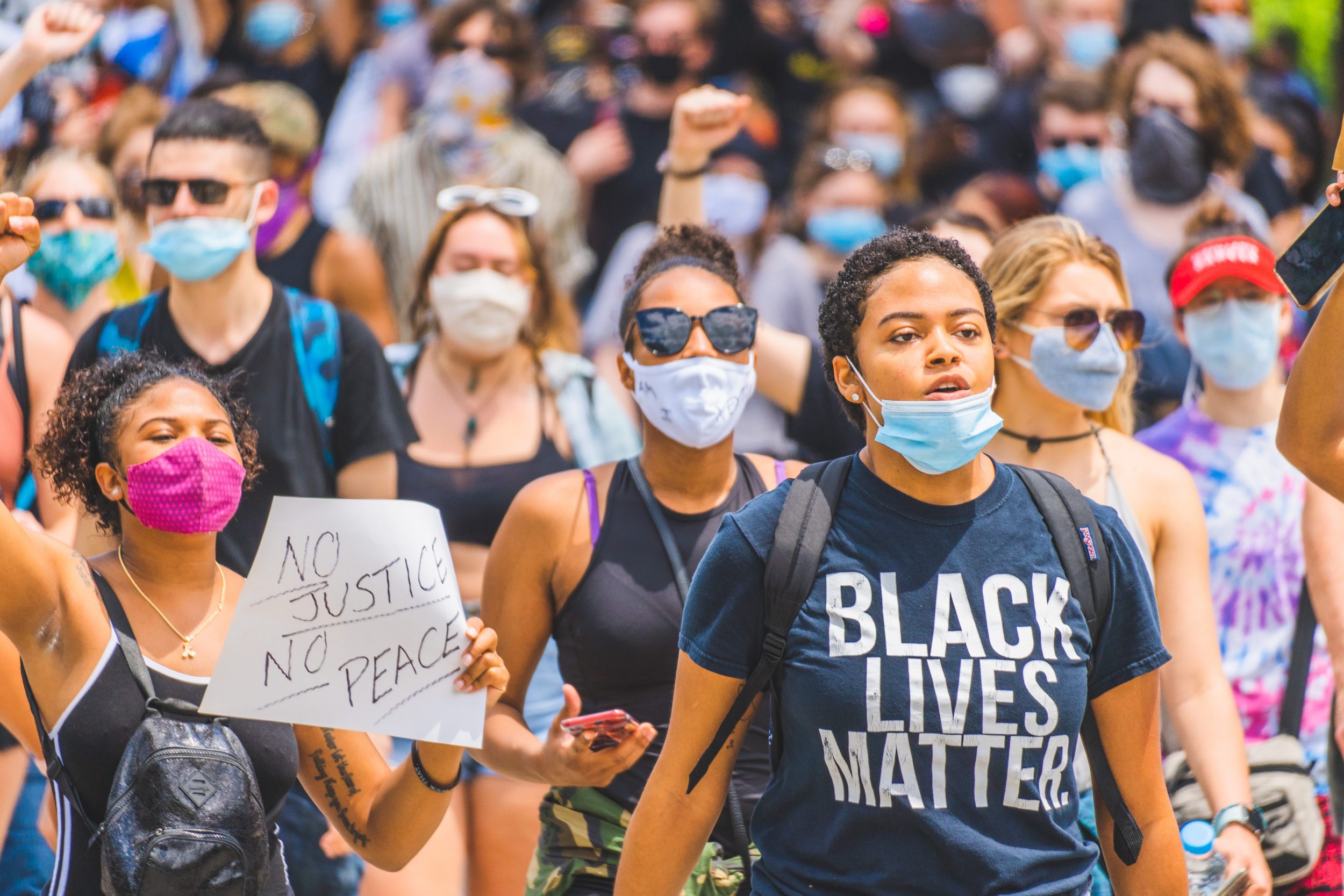 LSE’s Professor Lee Edwards writes about the ‘dark side’ of promotional strategies used by the UK government and others, looking at particular at attempts to use the Royal Navy to control migration.
LSE’s Professor Lee Edwards writes about the ‘dark side’ of promotional strategies used by the UK government and others, looking at particular at attempts to use the Royal Navy to control migration.
The promotional world has plenty of dark sides. Recently, the BBC’s three-part expose Big Oil vs the World illustrated the ways in which promotional industries worked with fossil fuel industries to obfuscate evidence about their climate impact and mitigate the threat of regulation and reputational damage. In their 2022 book, Rutgers scholars Melissa Aronczyk and Maria Espinoza reveal the long history of the industry’s attempts to shape environmental debates and agendas, protecting profits and practices that now see us at the tipping point of climate disaster. The same lamentable uses of promotion were behind the tobacco industry’s long denial of the links between health risks and smoking.
Of course, ethically suspect uses of promotion apply not only to global corporations, but also to states and their governments, raising questions about the dark sides of promotion as a tool to disguise poor governance and manipulate and manage citizens, rather than engage in dialogue with them. For example, last month the promotional industry’s ethics were questioned when news leaked that Edelman, one of the world’s largest strategic communications consultancies, was contracted to promote Saudi Arabia’s soft power, despite the country’s poor human rights record. More generally, Anu Kantola and Aeron Davies, among others, have shown how the world’s elites use promotional strategies to limit media attention and mask failure, whilst deploying political influence through personal relationships – thereby reducing the quality and accountability of our policymaking.
These dubious applications of promotion are noteworthy precisely because they come from an industry that regularly asserts its commitment to ethical practice. Codes of conduct that lay the foundations for the voluntary self-regulation of promotional industries detail not only client interests, but also some form of public interest (see, for example, the UK’s PRCA Professional Charter; or the PRSA’s emphasis on serving the public good), suggesting that the industries are bound by principles that go beyond contractual client relationships.
Life seekers
One might then expect that poor promotional practice would be called out by organisations that so overtly state their commitment to ethical community. Yet, we continue to see egregious uses of promotion by a wide range of actors passing without comment. Among the worst of these is the continued use of refugees – or ‘life seekers’, as University of Amsterdam’s Polly Pallister-Wilkins names them in her recent book – and their journeys as leverage for political gain.
News about life seekers and their journeys is never far from the headlines. In the last month, UK news has featured:
- the 75th anniversary of Partition, the arbitrary and disastrous division of ‘British’ India into the two independent countries of India and Pakistan in 1947, which resulted in millions being displaced and caught up in horrific violence;
- the stories of displaced people escaping the recent floods in Sudan and its neighbouring regions;
- interviews with Ukrainian life seekers on Ukrainian Independence Day.
Such stories make clear that forced migration is a longstanding reality in a world where mobility is often the only option for seeking a better life. But as Pallister-Wilkins argues, unequal mobilities structure forced migration, so that some are welcomed and pass across borders, while others are identified as threats and pushed back or kept in limbo.
Turning negatives to positives
Promotional opportunities can be neatly attached to ‘good’ migrants, whose bodies and practices conform to neoliberal expectations by meeting ever-more stringent criteria for admission, and demonstrating an entrepreneurial readiness for labour and market participation (see my colleagues Lilie Chouliaraki and Myria Georgiou’s recent book for more on this argument).
But as we have seen, promotion is also profitable when it can transform a negative situation into a positive. We see this not only in the case of Big Oil, or Big Tobacco, but also in the context of life seekers’ journeys, particularly as they encounter the brutality of border regimes enacted by national and transnational authorities.
In January this year, for example, the UK Home Office announced that the Royal Navy would be leading efforts to ‘push back’ small boats in the Channel. In political contexts like the UK, where controlling ‘illegal migration’ is a regular election promise, the ambivalent combination of humanitarian care and state-corporate control enacted at borders is often obscured by promotional talk that shores up government reputation and prioritises territorial integrity over saving lives (for example, see Pierluigi Musarò on the Italian operation Mare Nostrum, or the aforementioned books by Chouliaraki and Georgiou, and Pallister-Wilkins, for explorations of how commerce and compassion interact to construct borders).
The curious case of using the Navy against migrants’ dinghies
The Navy’s deployment was just one example of how using the complex and life-threatening realities of forced migration as an opportunity to promote government reputation, can lead directly to highly problematic and ethically questionable policy.
At the time, the decision was criticised within and outside government, because it was practically and militarily nonsensical. In fact, the announcement only made sense as a promotional exercise. Armed forces represent state power, its authority to control the territory where forces are deployed, and its latent capacity for defence against threats. Armed forces are also a significant physical statement: a Navy ship dwarfs border force vessels, acting as a material manifestation of the government’s serious intent to ‘push back’ boats and their passengers. Thus, in the context of a state that continually asserts its right to control rather than care for life seekers, and where life seekers are seen as a threat to national integrity, the deployment of the Navy has eminent promotional logic.
However, in practice, the Navy’s deployment was not only impractical (unlike smaller border force vessels, Royal Navy ships do not have the agility or the flexibility to easily intercept small dinghies), but also ethically impossible. The order to ‘push back’ contradicted the Navy’s higher duty, dictated by Article 98 of the UN Convention on the Law of the Sea, to assist anyone in danger at sea. Compassion, rather than control, dictates their actions in these contexts. Thus, deploying the Navy to ‘push back’ boats introduced a promotional conundrum. On one hand, the deployment reinforced the government’s reputation for control (via exclusion of unwanted life seekers) and enhanced the message of a ‘hostile environment’ for migration. On the other, the State’s obligations under Article 98 meant the Navy’s duty of compassion towards all those endangered in its waters, including life seekers, was unavoidable – directly contesting claims to control via exclusion. While a hostile environment denies life seekers’ humanity, compassion recognises it. This tension meant the promotional logic of the Navy’s deployment was undermined in practice.
Reality eventually bit back, and this month the Ministry of Defence confirmed a review of the Royal Navy’s role in search and rescue (SAR) efforts in the English Channel. The walk-back announcement was noticeable for one particularly excoriating radio interview with Labour MP John Spellar, a member of the Commons Defence Select Committee, who scathingly dismissed the original policy as a ‘publicity stunt’ by a government, implying that its purpose was to direct attention away from policies that had failed to address the ongoing attempts by life seekers to undertake the dangerous Channel crossing. Noteworthy also was the fact that no organisation representing the promotional industries was asked to comment on the matter, and none took it upon themselves to publicly reflect on the ways in which the brutality of the UK’s border regime had been used purely for promotional purposes.
Is this instrumentalization of the dire choices that life seekers face any different, in its ethical reprehensibility, from the desire to hide the effects of fossil fuels on climate, or tobacco on health? At scale, when promotional logic underpins inhumane and ineffective policies on migration that prioritise reputation and control rather than compassion, it can result in the thousands of deaths we have seen at the borders of the UK and Europe. Perhaps promotional industries do not speak up because they too readily accept media stereotypes and structures that deny both voice and recognition from life seekers, making it much easier to ignore their plight. But the industry should be thinking more deeply and broadly about its moral and ethical impact. When the trauma of life seekers’ realities is instrumentalised for the promotion of the State, the promotional industries themselves should reflect on their duty of care to wider society. Highlighting the vacuous nature of promotion-as-policy, and its dangerous effects, would be a step in the right direction.
This article reflects the views of the author and not those of the Media@LSE blog nor of the London School of Economics and Political Science.
Featured image: Photo by Marcus Woodbridge on Unsplash





